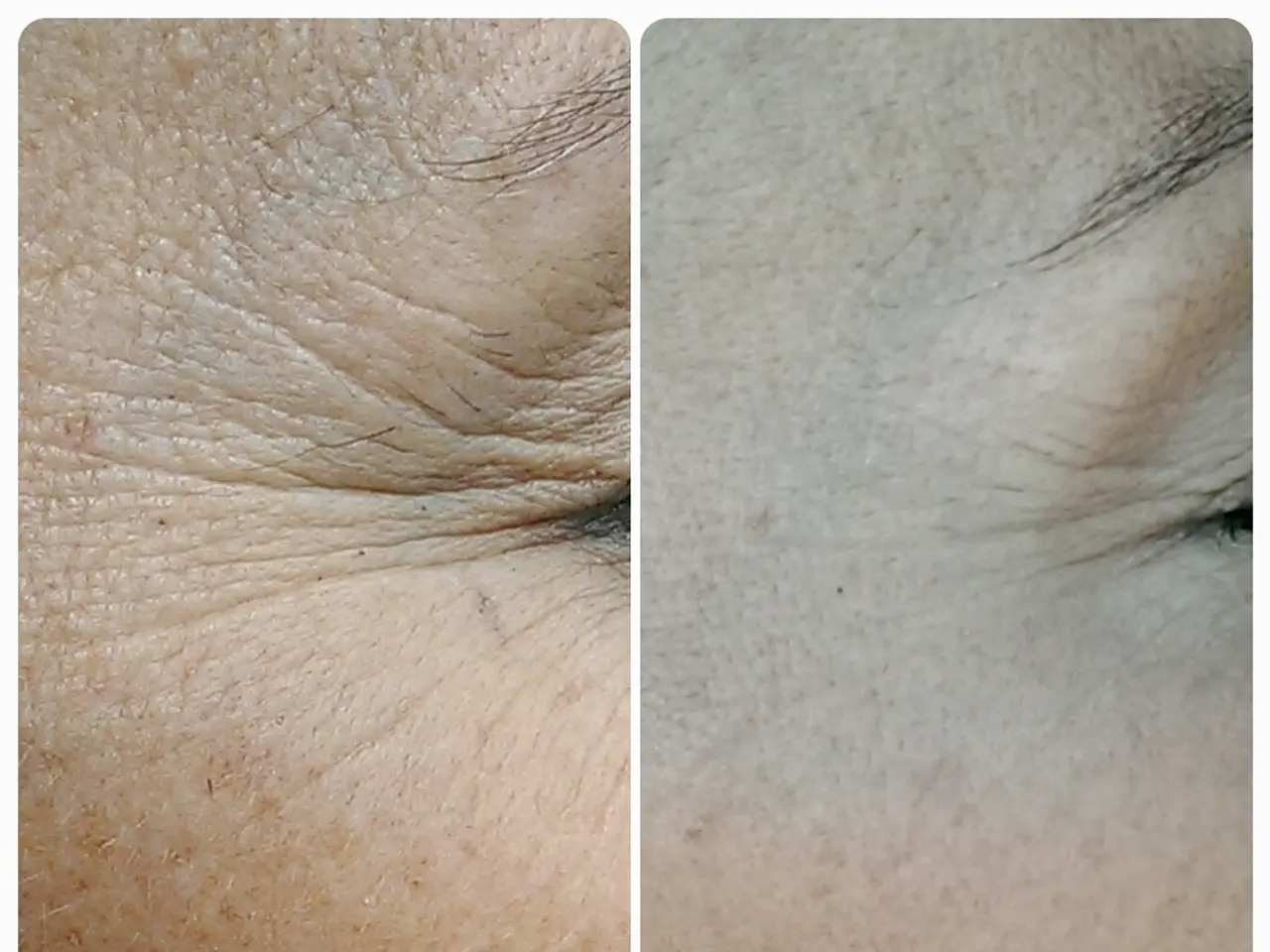Trial participant, a boy experiencing excruciating skin condition, finds new hope with inaugural treatment possibility
In a significant breakthrough, a clinical trial for a potential treatment of recessive dystrophic epidermolysis bullosa (RDEB), a rare and painful skin condition, has shown promising results. The trial, funded by NHS England, the National Institute for Health and Care Research, and the charity Cure EB, involved 30 children and was double-blind, with patients split into two groups, one receiving the treatment and the other a placebo.
The treatment, known as CORDStrom™, manufactured by INmuneBio, was administered to the children as an infusion over 10 to 12 minutes. The trial, published in the journal eClinicalMedicine, reported a positive outcome, particularly for children under 10 years old and those with the intermediate type of RDEB.
These young patients experienced the largest benefits from the MSC treatment, including improvements in symptom severity such as reduced pain, itching, and enhanced wound healing. A 12-year-old boy named Gabrielius Misurenkovas was among the participants in the trial. His mother, Jolita Cekaviciene, reported that her son's wounds healed quicker, his skin was less red and inflamed, his skin was less itchy, and his sleep was less disturbed during the trial.
Before the treatment, Gabrielius, like many RDEB patients, needed his bandages changed three times a day or more if injured. RDEB is a genetic disease that causes extremely fragile skin, leading to blistering, deep wounds, and scarring with even the smallest amount of friction. Over time, RDEB can lead to severe complications, including a type of skin cancer called squamous cell carcinoma, which is the most common cause of death for RDEB patients.
The trial results support hopes that MSC therapy could become part of routine care for children with RDEB pending further data and regulatory approval. INmuneBio has agreed to provide CORDStrom free of charge for a year for all children who took part in the trial. The company is seeking regulatory approval for the treatment so it can be approved for use in the UK and other countries.
Continued access to CORDStrom was provided free to trial participants for a year, with ongoing research planned to validate long-term benefits. The trial demonstrated safe, measurable clinical improvements in children under 10 and those with intermediate RDEB, indicating a promising treatment avenue for this rare and severe skin condition.
- The breakthrough clinical trial for chronic skin condition RDEB found promising results, particularly for young patients and those with the intermediate type, highlighting the potential of war in science on health-and-wellness issues like skin care.
- The trial's groundbreaking therapy, CORDStrom™, aimed at treating RDEB, showed significant improvements in symptom severity, leading to reduced pain, itching, and enhanced wound healing, offering a glimmer of hope for mental health of affected families.
- As RDEB can lead to severe complications such as skin cancer and chronic diseases, the approval of the treatment could pave the way for managing conditions like these, elevating mental health and wellbeing.
- The cannabis-derived compound CBD, known for its benefits in various health aspects, including mental health and skin care, could potentially present another avenue for investigating similar treatments for rare and severe conditions like RDEB.




